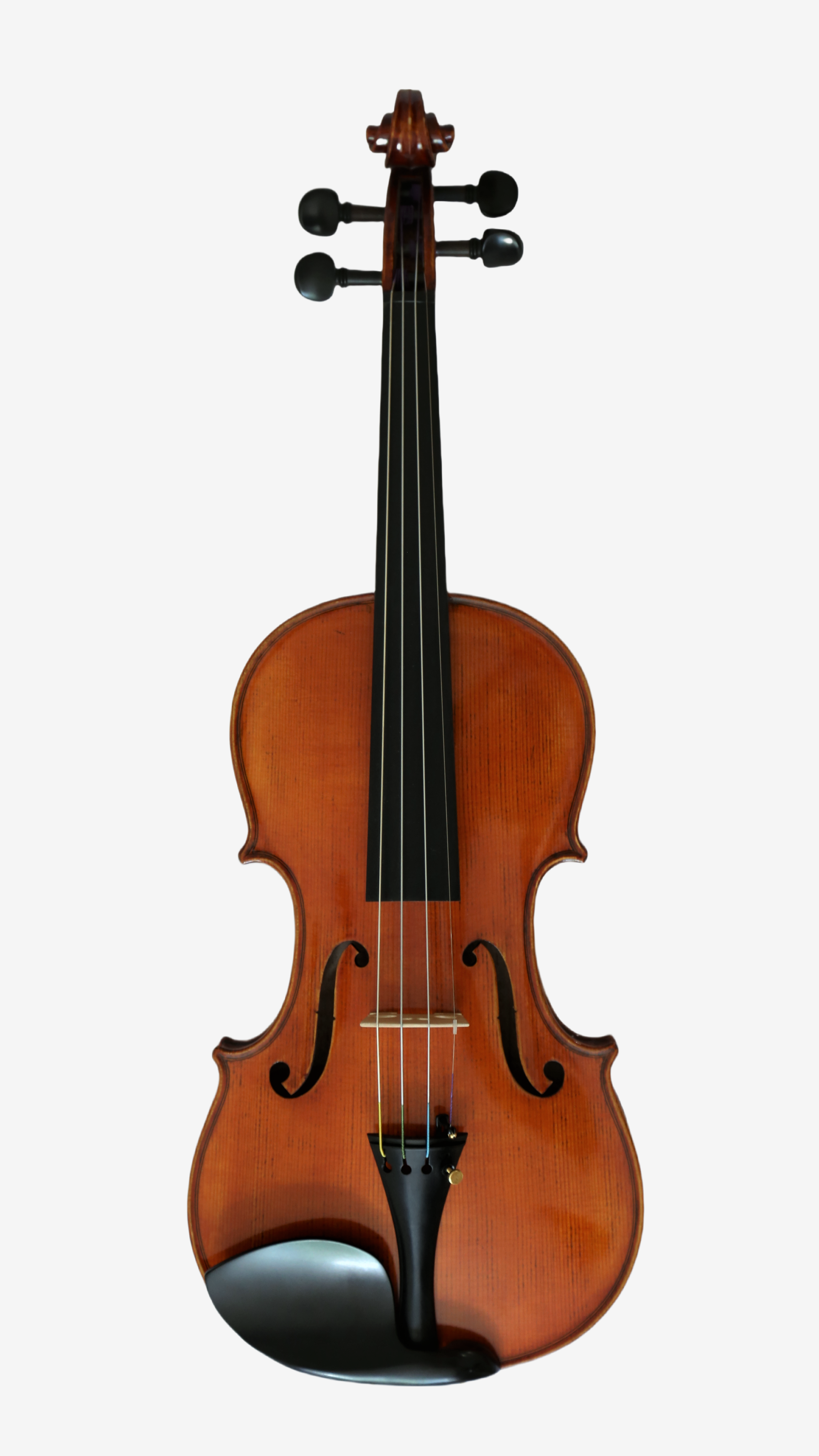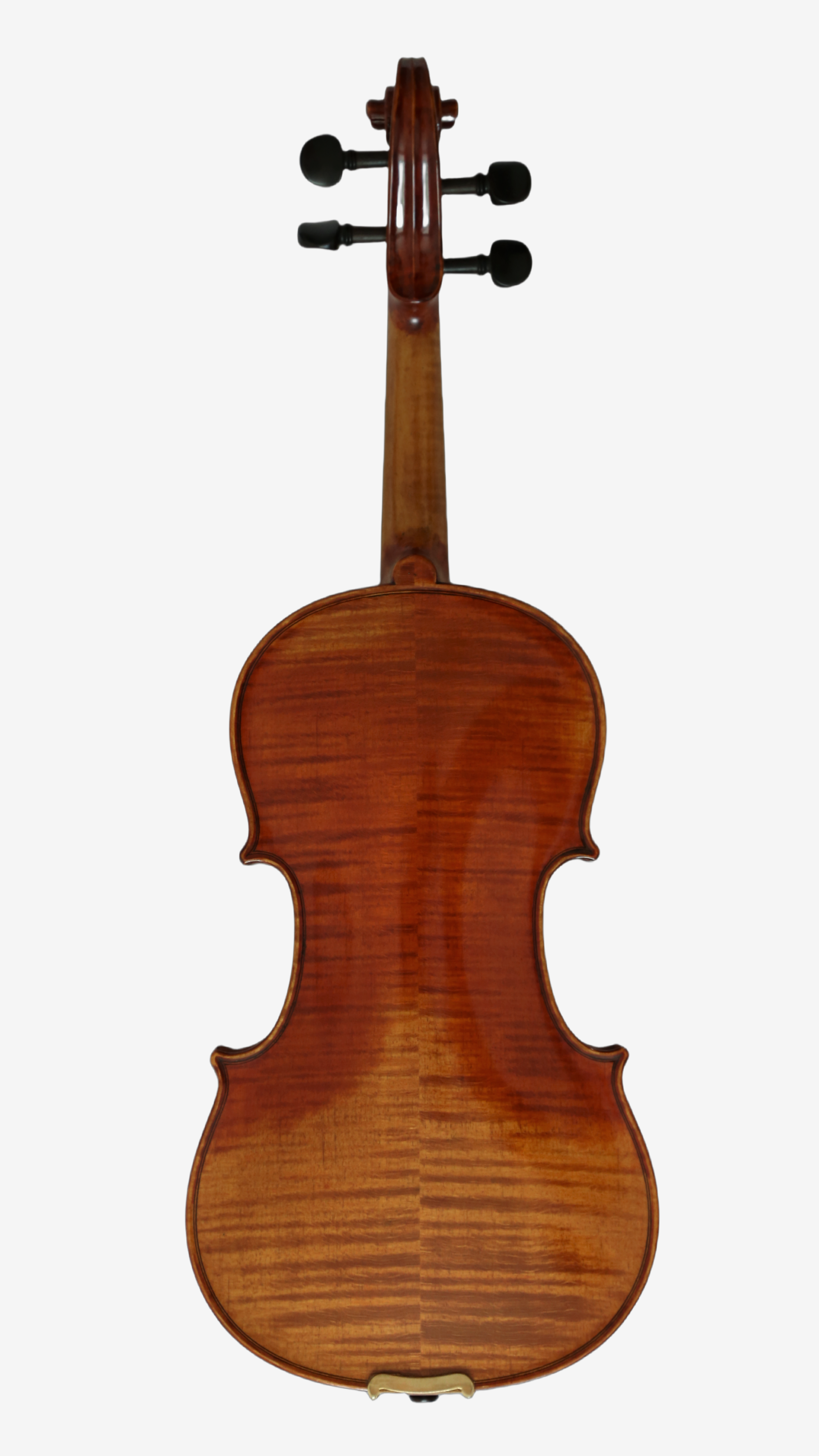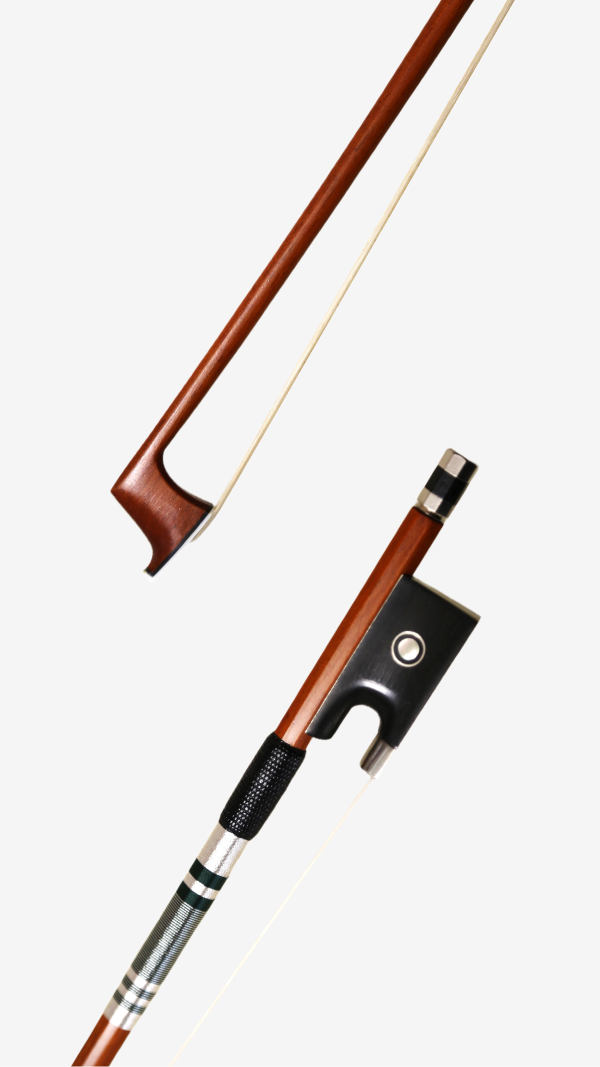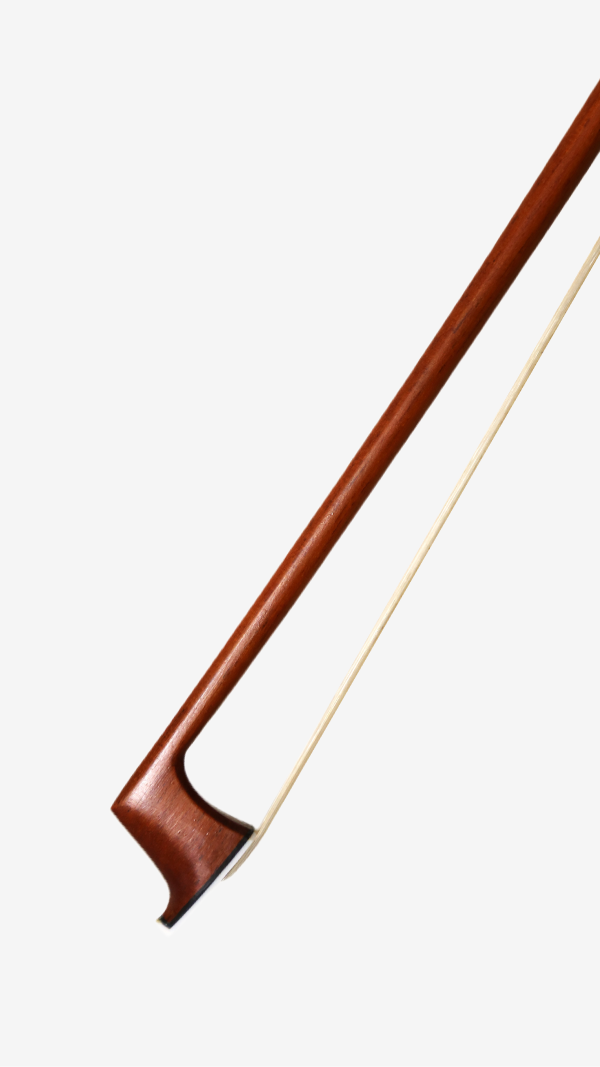Sort by:
Calore Violin
Regular price
$1,800.00
Sale price
$1,350.00
Violin Bow (Model 300) Brazilwood
Regular price
$300.00
Sale price
$240.00
FAQs
What is the difference between factory made and handmade violin?
The primary difference between factory-made and handmade violins lies in the craftsmanship, materials, and sound quality. Factory-made violins are typically mass-produced using machines, which allows for consistent production at a lower cost. However, this process limits attention to detail, and the materials used are often lower quality. As a result, factory violins often lack the depth and resonance that many musicians desire.
On the other hand, handmade violins are crafted by skilled luthiers who carefully select high-quality tonewoods like spruce for the top and maple for the back, sides, and neck. Each piece of wood is shaped and carved by hand, allowing the maker to maximize the instrument’s resonance and tonal potential. The varnishing process is also more meticulous, enhancing both the appearance and sound of the violin.
The sound of a handmade violin is generally richer, with greater tonal complexity and dynamic range. Handmade violins are unique; no two are exactly alike, as each is crafted with the luthier’s personal touch and expertise. While handmade violins can be more expensive, the investment is often worth it for those seeking an instrument with character, quality, and superior sound.
All instruments we offer here are 100% handmade from start to finish.
On the other hand, handmade violins are crafted by skilled luthiers who carefully select high-quality tonewoods like spruce for the top and maple for the back, sides, and neck. Each piece of wood is shaped and carved by hand, allowing the maker to maximize the instrument’s resonance and tonal potential. The varnishing process is also more meticulous, enhancing both the appearance and sound of the violin.
The sound of a handmade violin is generally richer, with greater tonal complexity and dynamic range. Handmade violins are unique; no two are exactly alike, as each is crafted with the luthier’s personal touch and expertise. While handmade violins can be more expensive, the investment is often worth it for those seeking an instrument with character, quality, and superior sound.
All instruments we offer here are 100% handmade from start to finish.
How do you know if a violin is good quality?
Determining the quality of a violin involves examining its construction, materials, and sound. First, look at the wood: high-quality violins are made from aged tonewoods, with spruce for the top plate and maple for the back, sides, and neck. These woods contribute to better sound resonance and stability over time. Check the wood grain, especially on the spruce top—tight, even grain patterns generally indicate good quality.
Craftsmanship is another key indicator. Inspect the instrument’s seams, scroll, and purfling (the decorative inlay around the edges). Clean, precise purfling, a well-carved scroll, and seamless joints show skilled workmanship, often found in quality violins. Sound is the ultimate test. A good-quality violin will have a warm, rich tone with clarity and balance across all strings. Playability matters, too—the strings should feel responsive to the bow without too much resistance, and the violin should project sound well.
Craftsmanship is another key indicator. Inspect the instrument’s seams, scroll, and purfling (the decorative inlay around the edges). Clean, precise purfling, a well-carved scroll, and seamless joints show skilled workmanship, often found in quality violins. Sound is the ultimate test. A good-quality violin will have a warm, rich tone with clarity and balance across all strings. Playability matters, too—the strings should feel responsive to the bow without too much resistance, and the violin should project sound well.
How much does a good violin cost?
The cost of a good violin varies widely, depending on its craftsmanship, materials, and origin. Beginner violins generally start around $500 to $700 for reliable, quality options. Intermediate instruments, often handcrafted with better tonewoods and more refined construction, typically range from $1,200 to $5,000. Advanced and professional violins, often handmade by skilled luthiers, can cost anywhere from $7,000 to well over $30,000.
While factory-made violins are cheaper, handmade violins generally offer superior sound and longevity, making them a worthwhile investment for serious players. Remember, a well-chosen violin can retain or even appreciate in value over time.
While factory-made violins are cheaper, handmade violins generally offer superior sound and longevity, making them a worthwhile investment for serious players. Remember, a well-chosen violin can retain or even appreciate in value over time.
Which violin is best for beginners?
For beginners, it’s often worth investing in a quality instrument rather than opting for a lower-cost factory-made violin. Although factory-made violins can be affordable, they typically lack the sound quality and responsiveness that can inspire new players. Beginners often advance quickly within the first two years and may find themselves needing an upgrade sooner than expected.
A well-made, entry-level handmade or high-quality factory violin can support a student's growth, producing a warmer tone and making practice more enjoyable. These violins are crafted with better tonewoods and construction, helping students develop their ear for tone and improve their technique. By choosing a quality instrument from the start, beginners may save money in the long run, as they’re less likely to outgrow it quickly.
A well-made, entry-level handmade or high-quality factory violin can support a student's growth, producing a warmer tone and making practice more enjoyable. These violins are crafted with better tonewoods and construction, helping students develop their ear for tone and improve their technique. By choosing a quality instrument from the start, beginners may save money in the long run, as they’re less likely to outgrow it quickly.
Do you plan to offer more instruments?
Yes, we plan to offer more violins and violin bows in the near future. However, we are purposefully limiting the instruments we are offering to those that we truly believe are exceptional in both quality and value. We will only introduce violins and bows that Marry, a professional violinist and our co-founder, can confidently recommend to her own students and fellow violinists.
We are working with the master luthier to offer other models to our customers. However, this may take time because the master luthier can only produce a limited quantity of instruments and the materials for these violins and bows (especially the aged tonewood) are extremely limited in their availability.
We are working with the master luthier to offer other models to our customers. However, this may take time because the master luthier can only produce a limited quantity of instruments and the materials for these violins and bows (especially the aged tonewood) are extremely limited in their availability.




